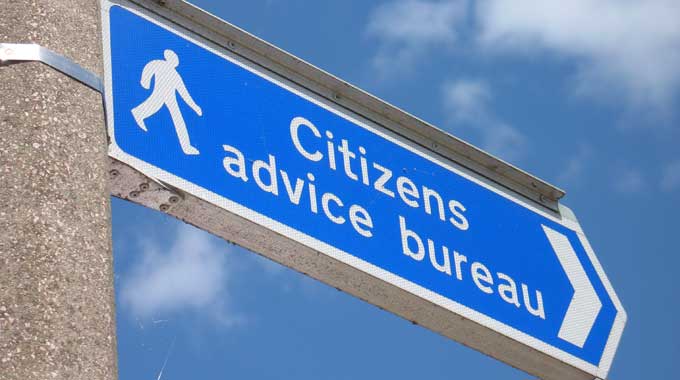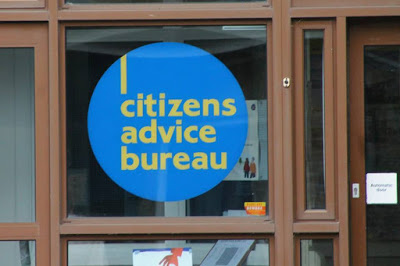From Citizens Advice
36 million Brits targeted by a scammer so far this year

More than two thirds of adults (36 million) have been targeted by a scammer since January, new research by Citizens Advice has found.
While over 55s are most likely to be targeted, those 34 and under are almost five times more likely to fall victim to a scam than their older counterparts*, the charity can reveal.
Younger people were most likely to be targeted by text or messaging service (61%), while those over 55 were most likely to be targeted over the phone (73%).
Of all those targeted by a scammer:
-
54% were about fake deliveries or parcels
-
41% were by someone pretending to be from the government
-
12% were by someone offering a fake investment or get rich quick scheme

Data from Citizens Advice Consumer Service confirms reports of scams are increasing sharply. Comparing the first five months of 2021 with the same period in 2020:
-
The number of scams reported to the charity has more than doubled (123%)
-
Scams via unsolicited emails are up seven-fold (667%), and scams via telephone calls have increased 60%.
Citizens Advice has seen a range of different tactics used by scammers, including:
-
An elderly man who came to the charity after he sent £240,000 to an account he thought belonged to his bank
-
A young woman who got in touch when she lost £2,000 to a fake cryptocurrency company after receiving a message from a friend’s hacked social media account
-
A woman from Suffolk who lost £750 she had sent to a bogus dog breeder
To encourage people to report scams, share their experiences and look out for others, Citizens Advice and the Consumer Protection Partnership have launched their annual Scams Awareness campaign.

Dame Clare Moriarty, Chief Executive of Citizens Advice, said:
“From fraudulent get rich quick schemes to dodgy texts, opportunistic scammers continue to prey on even the savviest of consumers. Our research shows that when it comes to scams anyone can be targeted, and anyone can be tricked.
“It’s more important than ever we all do our bit to report scams when we see them to help protect ourselves and others. By learning how scammers operate, and helping each other understand what to look out for, we can all work together to stop fraudsters in their tracks.“

Paul Scully, Consumer Minister, said:
“As these figures show, absolutely anyone can be the victim of a scam. Criminals don’t care who they’re scamming, as long as they get what they want.
“You might think you’re really tech-savvy, but we’re now seeing scams so convincing they’d give a computer programmer pause for thought.
“The best way to protect ourselves from scams is to dispel the myth that only a certain type of person is at risk, share experiences, and report suspected scams to Citizens Advice and Action Fraud.”
John Herriman, Chief Executive of Chartered Trading Standards Institute, said:
“The COVID-19 pandemic has brought levels of anguish to the public that we haven’t seen for many years. While there seems to be light at the end of the tunnel, fraudsters have not relented.
“Beyond the profoundly destructive and life-destroying impact scams have, the climate of fear is apparent, with 68% of people reporting that they are worried for either themselves, their family, or friends falling victim to scams, a level of concern shared across all age groups.
“Trading Standards professionals across the country are working around the clock to help protect the public from malicious fraudsters, and their work throughout the pandemic has been exceptional. Their work, however, is enhanced by an informed and empowered public.
“Scams Awareness and initiatives like Friends Against Scams are vital annual campaigns that do so much to raise public awareness and improve the protective bonds between the public, consumer protection authorities, and business. We are strongest when we are united.”
Louise Baxter, Head of the National Trading Standards Scams Team, said:
“This disturbing rise in scams shows that financial abuse is now a part of everyday life in the UK. They are becoming more mainstream and more sophisticated, backed by a rising influence of organised crime networks in scams and fraud that are seeking to exploit the pandemic.
“These rising cases of scams and fraud are deliberately designed to deceive victims and can cause emotional distress, social isolation, a loss of confidence, financial loss and in some cases physical effects caused by the loss, shame and stress. Just being targeted by scams has been shown to damage people’s wellbeing. We urge people to protect themselves and their loved ones from scams by completing our free Friends Against Scams awareness training at www.FriendsAgainstScams.org.uk.”

Citizens Advice consumer expert Jerry Houseago gives his top five tips to stay scam aware:
“As everything begins to open up again, we can all take steps to safeguard ourselves and others against online and offline scams alike.”
Jerry warns it might be a scam if:
-
it seems too good to be true – for example, a holiday that’s much cheaper than you’d expect
-
you suspect you’re not dealing with a real company – for example, if there’s no postal address
-
you’ve been pressured to transfer money quickly or in an unusual way – like by iTunes vouchers or a transfer service
-
you’ve been asked to give away personal information like passwords or PINs
-
you haven’t had written confirmation of what’s been agreed
If you’ve been scammed, Jerry advises:
-
talk to your bank or card company immediately if you’ve handed over any financial and sensitive information or made a payment
-
report the scam to Citizens Advice. Offline scams, like telephone, post and doorstep, to the Citizens Advice website or by calling 0808 223 1133. Report online scams to the dedicated Scams Action service either onlineor on 0808 250 5050
-
text scams can be reported to your mobile phone provider by forwarding it to 7726
-
also report the scam to Action Fraud on 0300 123 2040

